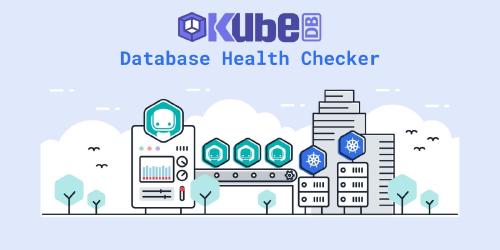KubeDB
Run Production-Grade Databases on Kubernetes
arrow_forwardKubeStash
Backup and Recovery Solution for Kubernetes
arrow_forwardStash
Backup and Recovery Solution for Kubernetes
arrow_forwardKubeVault
Run Production-Grade Vault on Kubernetes
arrow_forwardVoyager
Secure Ingress Controller for Kubernetes
arrow_forwardConfigSyncer
Kubernetes Configuration Syncer
arrow_forwardKubeDB simplifies Provisioning, Upgrading, Scaling, Volume Expansion, Monitor, Backup, Restore for various Databases in Kubernetes on any Public & Private Cloud
- task_altLower administrative burden
- task_altNative Kubernetes Support
- task_altPerformance
- task_altAvailability and durability
- task_altManageability
- task_altCost-effectiveness
- task_altSecurity

A complete Kubernetes native disaster recovery solution for backup and restore your volumes and databases in Kubernetes on any public and private clouds.
- task_altDeclarative API
- task_altBackup Kubernetes Volumes
- task_altBackup Database
- task_altMultiple Storage Support
- task_altDeduplication
- task_altData Encryption
- task_altVolume Snapshot
- task_altPolicy Based Backup

A complete Kubernetes native disaster recovery solution for backup and restore your volumes and databases in Kubernetes on any public and private clouds.
- task_altDeclarative API
- task_altBackup Kubernetes Volumes
- task_altBackup Database
- task_altMultiple Storage Support
- task_altDeduplication
- task_altData Encryption
- task_altVolume Snapshot
- task_altPolicy Based Backup

KubeVault is a Git-Ops ready, production-grade solution for deploying and configuring Hashicorp's Vault on Kubernetes.
- task_altVault Kubernetes Deployment
- task_altAuto Initialization & Unsealing
- task_altVault Backup & Restore
- task_altConsume KubeVault Secrets with CSI
- task_altManage DB Users Privileges
- task_altStorage Backend
- task_altAuthentication Method
- task_altDatabase Secret Engine

Secure Ingress Controller for Kubernetes
- task_altHTTP & TCP
- task_altSSL
- task_altPlatform support
- task_altHAProxy
- task_altPrometheus
- task_altLet's Encrypt

Kubernetes Configuration Syncer
- task_altConfiguration Syncer
RECENT NEWS/BLOG
19 AugKubeDB Health Checker
byMd Fahim AbrarKubeDB Health Checker In KubeDB v2022.08.08 , we’ve improved KubeDB database health checks and users can now control the behavior of the health checks performed by KubeDB. We’ve added a new field called healthChecker under spec. It controls the behavior of health checks. It has the following fields: spec.healthChecker.periodSeconds specifies the interval between each health check iteration. spec.healthChecker.timeoutSeconds specifies the timeout for each health check iteration. spec.healthChecker.failureThreshold specifies the number of consecutive failures to mark the database as NotReady.
18 MaySee More arrow_forwardChallenges of Autoscaling Databases in Kubernetes
byMd Kamol Hasan byMd Fahim AbrarSummary On 18th May 2022, AppsCode held a webinar on Challenges of Autoscaling Databases in Kubernetes. The key contents of the webinar are: What is a stateful workload? Kubernetes StatefulSet and its features? Why auto-scaling? Advantages? Problem with database horizontal scaling How does KubeDB implement managed horizontal scaling? Challenges of auto-scaling databases using VPA How does KubeDB implement auto-scaling? Auto-scaling architecture. Live demonstration of MongoDB sharded cluster auto-scaling Description of the Webinar Earlier in the webinar, we discussed the stateful workloads.
- Webinar New








